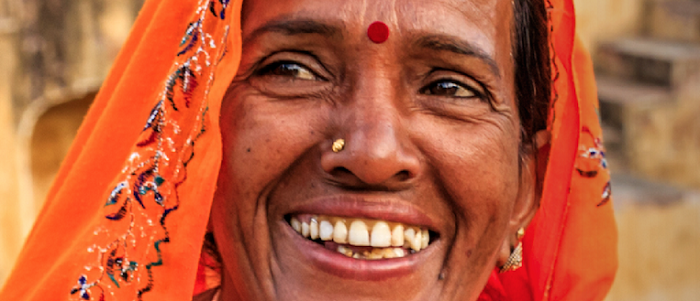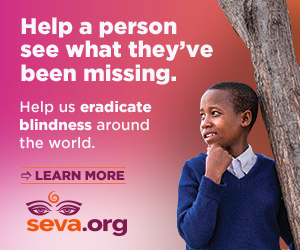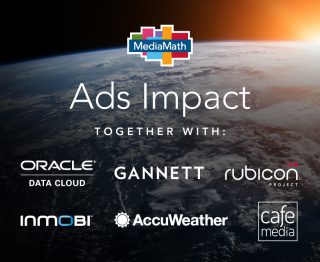This blog post is a part of IAB’s The Advantage: Knowledge for an Ever-Changing Industry series.
I joined MediaMath in 2012 and shortly after, helped launch the New Marketing Institute. The NMI serves as the educational arm of our company, providing training and certification for clients, employees and university students who are looking to transition into the ad tech world. I deeply and passionately believe in the power of learning and development to help people fulfill their potential and in turn, drive their firms and teams forward.
The NMI was created to tackle the education and talent gaps in our company. The purpose of education and training is to bridge the distance between people’s talent and what they need to know to exercise that talent. Since launch, we’ve trained over 20,000 people globally and have been recognized for our efforts by many leading educational groups and industry associations, including IAB.
I’m really proud of the progress we’ve made, and I’m encouraged by the impact we’ve had inside and outside our industry. I receive emails regularly from people wanting to know how to start an educational practice centered around digital marketing and technology at their own enterprise. I give everyone the same advice – creating a digital marketing education hub begins with acknowledging that every individual has room for improvement.
Whether you are a seasoned industry professional or new to the industry, we can all agree that the need to continue learning never stops. With technology — and ad tech specifically — we’re constantly realizing what we still don’t know. We may be experts in specific practices, but we can’t stay experts without training and education.
If you are tasked with bringing Learning & Development (L&D) to the forefront of your company, or you are looking to learn more about what it is like to do so, here are six tips based on my experience:
1. Create a Safe Space
You’ll be surprised what people reveal when you create a space to have honest conversations about their gaps in understanding. Everyone, even the CEO, knows they have blind spots in their knowledge. They all understand that uncomfortable feeling of having those blind spots exposed. If you can create an environment of safety and comfort, you will help more people embrace the function of education.
2. Be Bold and Courageous
This can happen in many different ways, like initiating a conversation about a best practice, a technology, or an unconventional way of thinking. It’s about having the courage to stand up and put ideas out there. Constructing new solutions to both old and new challenges is one of the really cool things about our industry, but having the training to underpin that construction is key to success. Complex subjects like algorithms and artificial intelligence may intimidate some people, but they are not intimidated by education. Professional development is seen as a way to level set knowledge and an investment in themselves.
To read the rest of the post please click here.



 Marta Barrera is a Senior Sales Manager at MediaMath. She currently manages a portfolio of blue chip clients and key agency partnerships across South East Asia. During her free time, you will find her scuba diving around Asia or simply enjoying a glass of wine with friends.
Marta Barrera is a Senior Sales Manager at MediaMath. She currently manages a portfolio of blue chip clients and key agency partnerships across South East Asia. During her free time, you will find her scuba diving around Asia or simply enjoying a glass of wine with friends. Shifali Ranawaka is an Engagement Director with eight years of experience in programmatic. She works in the Singapore office at MediaMath across a range of agency and direct clients. Shifali enjoys cooking, painting and indulging in terrible reality TV.
Shifali Ranawaka is an Engagement Director with eight years of experience in programmatic. She works in the Singapore office at MediaMath across a range of agency and direct clients. Shifali enjoys cooking, painting and indulging in terrible reality TV.







 To raise awareness of Seva’s efforts during the busy holiday season last year, MediaMath and our partners, Rubicon Project and Oracle Data Cloud, contributed their time and technology to run a campaign aimed at driving email sign-up and visits to Seva’s Gifts of Sight catalog. Publishers Gannett, InMobi, AccuWeather and CafeMedia generously contributed $100,000 in donated media to the campaign, which also tested which audiences and creative messaging resonated with donors.
To raise awareness of Seva’s efforts during the busy holiday season last year, MediaMath and our partners, Rubicon Project and Oracle Data Cloud, contributed their time and technology to run a campaign aimed at driving email sign-up and visits to Seva’s Gifts of Sight catalog. Publishers Gannett, InMobi, AccuWeather and CafeMedia generously contributed $100,000 in donated media to the campaign, which also tested which audiences and creative messaging resonated with donors.